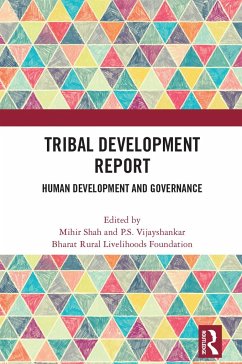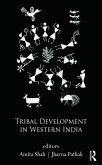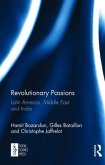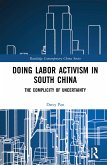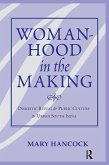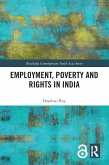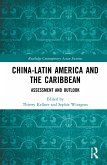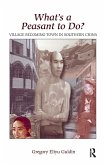Tribal Development Report
Human Development and Governance
Herausgeber: Shah, Mihir; Rural, Bharat; Vijayshankar, P S
Tribal Development Report
Human Development and Governance
Herausgeber: Shah, Mihir; Rural, Bharat; Vijayshankar, P S
- Gebundenes Buch
- Merkliste
- Auf die Merkliste
- Bewerten Bewerten
- Teilen
- Produkt teilen
- Produkterinnerung
- Produkterinnerung
This book sheds light on the status of tribal communities in Central India with respect to governance, human development, gender, health, education, arts, and culture.
Andere Kunden interessierten sich auch für
![Tribal Development in Western India Tribal Development in Western India]() Tribal Development in Western India220,99 €
Tribal Development in Western India220,99 €![Revolutionary Passions Revolutionary Passions]() Hamit BozarslanRevolutionary Passions179,99 €
Hamit BozarslanRevolutionary Passions179,99 €![Doing Labor Activism in South China Doing Labor Activism in South China]() Darcy PanDoing Labor Activism in South China200,99 €
Darcy PanDoing Labor Activism in South China200,99 €![Womanhood In The Making Womanhood In The Making]() Mary HancockWomanhood In The Making179,99 €
Mary HancockWomanhood In The Making179,99 €![Employment, Poverty and Rights in India Employment, Poverty and Rights in India]() Dayabati RoyEmployment, Poverty and Rights in India178,99 €
Dayabati RoyEmployment, Poverty and Rights in India178,99 €![China-Latin America and the Caribbean China-Latin America and the Caribbean]() China-Latin America and the Caribbean189,99 €
China-Latin America and the Caribbean189,99 €![What's A Peasant To Do? Village Becoming Town In Southern China What's A Peasant To Do? Village Becoming Town In Southern China]() Greg GuldinWhat's A Peasant To Do? Village Becoming Town In Southern China178,99 €
Greg GuldinWhat's A Peasant To Do? Village Becoming Town In Southern China178,99 €-
-
-
This book sheds light on the status of tribal communities in Central India with respect to governance, human development, gender, health, education, arts, and culture.
Produktdetails
- Produktdetails
- Verlag: CRC Press
- Seitenzahl: 358
- Erscheinungstermin: 30. September 2022
- Englisch
- Abmessung: 234mm x 156mm x 22mm
- Gewicht: 703g
- ISBN-13: 9780367724733
- ISBN-10: 0367724731
- Artikelnr.: 63396609
- Verlag: CRC Press
- Seitenzahl: 358
- Erscheinungstermin: 30. September 2022
- Englisch
- Abmessung: 234mm x 156mm x 22mm
- Gewicht: 703g
- ISBN-13: 9780367724733
- ISBN-10: 0367724731
- Artikelnr.: 63396609
Mihir Shah has co-founded the Samaj Pragati Sahayog in 1990 and has spent the past three decades living and working in remote, central tribal India, forging a new paradigm of inclusive and sustainable development. From 2009 to 2014, he was Member, Planning Commission, Government of India, chiefly responsible for drafting the paradigm shift in water enunciated in the 12th Five-Year Plan, as also a makeover of MGNREGA, with a renewed emphasis on rural livelihoods, based on construction of productive assets. In 2019, the Government of India invited him to chair a Committee to draft the new National Water Policy. P.S. Vijayshankar is co-founder of Samaj Pragati Sahayog, one of the largest civil society initiatives in water and agriculture based in Central India. He has lived and worked among the tribal communities for over 30 years. He was a Visiting Scholar at the Centre for Advanced Study of India (CASI), University of Pennsylvania, Philadelphia, USA, (2011) and is currently Adjunct Faculty at Centre for Public Affairs and Critical Theory (C-PACT), Shiv Nadar University, Delhi. He is the Founding Director of Nature Positive Farming and Wholesome Foods Foundation (N+3F), a company engaged in the promotion of sustainable agriculture. Bharat Rural Livelihoods Foundation (BRLF: http://brlf.in) was set up by the Ministry of Rural Development, Government of India, as an independent society with the aim of upscaling civil society action in partnership with government, with a focus on the Central Indian tribal region. Together with its civil society partners and several state governments, BRLF is working with hundreds of thousands of, mostly tribal, households, to eliminate poverty and deprivation, develop climate resilient sustainable livelihoods, create empowered community institutions led by women, and build capacities and tribal leadership at the grassroots. This Tribal Development Report has been anchored by BRLF's research vertical.
Introduction PART I: Human Development and Governance 1. Gender Issues
Including Gender-based Violence, among Scheduled Tribes 2. Forests, People,
and their Hopes: PESA and FRA and Overview 3. Health of Tribal People in
Central India 4. Hunger and Malnutrition amongst Adivasis 5. Educational
Situation of Scheduled Tribe in India: With a Focus on Schedule V Areas and
West Bengal 6. The Children of Lesser Gods: The Tragedy of Denotified
Tribes Today PART II: Arts, Crafts, and Languages 7. A Status Report of the
Tribal Arts within the Central Indian Tribal Belt 8. Adivasi Knowledge,
Language, and Literature
Including Gender-based Violence, among Scheduled Tribes 2. Forests, People,
and their Hopes: PESA and FRA and Overview 3. Health of Tribal People in
Central India 4. Hunger and Malnutrition amongst Adivasis 5. Educational
Situation of Scheduled Tribe in India: With a Focus on Schedule V Areas and
West Bengal 6. The Children of Lesser Gods: The Tragedy of Denotified
Tribes Today PART II: Arts, Crafts, and Languages 7. A Status Report of the
Tribal Arts within the Central Indian Tribal Belt 8. Adivasi Knowledge,
Language, and Literature
Introduction PART I: Human Development and Governance 1. Gender Issues
Including Gender-based Violence, among Scheduled Tribes 2. Forests, People,
and their Hopes: PESA and FRA and Overview 3. Health of Tribal People in
Central India 4. Hunger and Malnutrition amongst Adivasis 5. Educational
Situation of Scheduled Tribe in India: With a Focus on Schedule V Areas and
West Bengal 6. The Children of Lesser Gods: The Tragedy of Denotified
Tribes Today PART II: Arts, Crafts, and Languages 7. A Status Report of the
Tribal Arts within the Central Indian Tribal Belt 8. Adivasi Knowledge,
Language, and Literature
Including Gender-based Violence, among Scheduled Tribes 2. Forests, People,
and their Hopes: PESA and FRA and Overview 3. Health of Tribal People in
Central India 4. Hunger and Malnutrition amongst Adivasis 5. Educational
Situation of Scheduled Tribe in India: With a Focus on Schedule V Areas and
West Bengal 6. The Children of Lesser Gods: The Tragedy of Denotified
Tribes Today PART II: Arts, Crafts, and Languages 7. A Status Report of the
Tribal Arts within the Central Indian Tribal Belt 8. Adivasi Knowledge,
Language, and Literature

